|
Helpful Resources for Today's Class: Let's take a look at a modern-day revolution to see how it began and what underlying factors may have been present that contributed to the start: Case-study: a modern-day revolution:
Compare/Contrast Revolutions: Additional options for 2nd choice of revolution:
Once you have decided on which revolution you want to research, please complete the following short Google Form. HW: take notes from at least 1 source on 2nd revolutionBe sure to include details across all columns of your research table, including OPVL and QCI.
Consider with QCI which of the supporting questions this source helps you to answer--these are your insights.
Helpful Resources for Research on the French Revolution:
Today, we will continue working with the concept map you developed. We will turn the conceptual relationships you identified into statements. You will list these statements and decide on 1 statement you want to focus on. You will use this statement as a topic. You will then write 1-2 paragraphs on this topic and post it to SeeSaw. This is a journaling/free-writing exercise to demonstrate your understanding of the concepts. Please do not use your notes for this. Use the following Conceptual Understanding Rubric to guide the depth and details you include in your writing. Sneak-peek: revolutionsWhat causes a revolution? There are several factors that may lead to a revolution--rarely is there only 1 cause. Often there are underlying factors. Consider the story of Alphonse the Camel -- was this not true for poor Alphonse's death? Revolutions are similar...it is not always caused by the final straw. Let's take a look at a modern-day revolution to see how it began and what underlying factors may have been present that contributed to the start:
HW: Read Human Story CH. 13Read The Human Story, Chapter 13. Take notes on some of the revolutionary changes it addresses (hint: there are several revolutions mentioned in this chapter). Use the guiding questions to decide what is worth taking notes on.
Remember, only take notes on information that helps you answer the questions. After Today's Socratic Discussion... Concept mappingYou will work on mind-mapping out the ideas and insights you now have about the relationship between the concepts of power, values (or ideology), change and conflict. You will use this concept map to brainstorm a list of statements of understanding you now have about these concepts within the context of how ideas can lead to revolutionary change within society. HW: write 1-2 paragraphs (on seesaw) about your insights to the power of ideasBased on your statements, choose one of your statements to be a TOPIC sentence for a paragraph summary. This statement is essentially a claim. You will write your explanation of this statement for homework (please limit this to 1-2 paragraphs--no more than 2 paragraphs). You will post this to SeeSaw for homework.
...your Discussion circle...You will be assigned to participate in a Socratic Discussion focusing on one of the following sets of questions. Your preparation and participation will be formatively assessed using the Shared Inquiry Rubric Individual Preparation for discussionStep 1. Continue Taking Notes... Consider any of the following resources to help you learn more about the Enlightenment and your selected philosophers. You should have notes on 3 different philosophers so that it will allow you to more fully understand the similarities and differences in their ideas --and participate more fully in the discussion.
Step 3: Watch the Practice Shared Inquiry Videos There are videos posted in Schoology from your class' practice Shared Inquiry discussion (from Unit 1). Click on the link for the Homework reminder within the Schoology course and you will see links to your last Socratic Discussion. They are also posted within the Uni1 folder on Schoology. Enlightenment Kahoot!Okay, you've spent some time taking notes on the Enlightenment and on 2-3 philosophers... let's see how well you know some of the details--get ready for Kahoot!
|
Mrs. Stewart's CourseYou'll find a daily agenda posted here for each day that class meets Archives
May 2020
Categories |
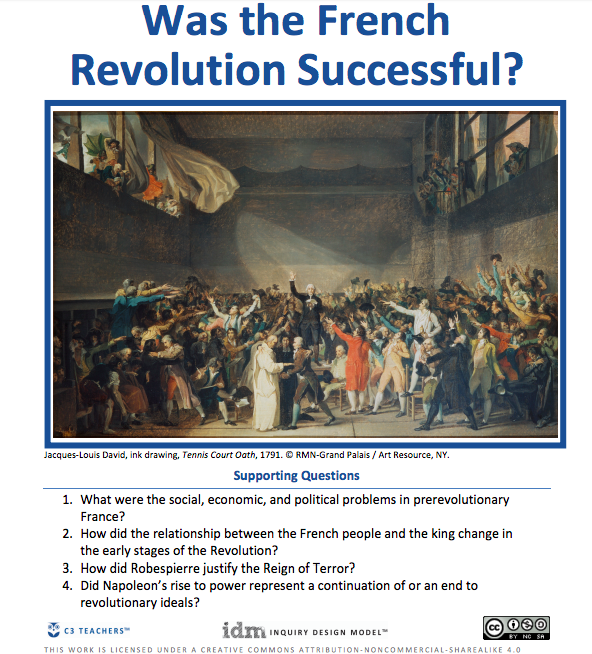
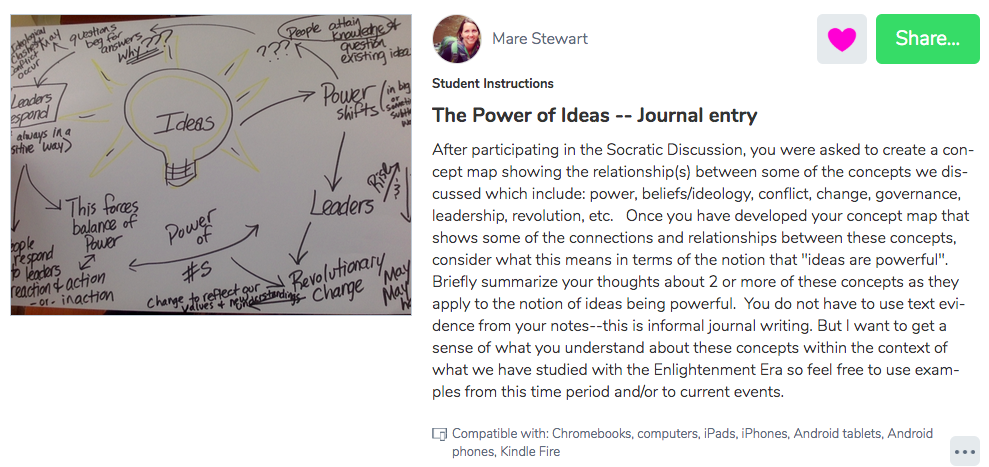
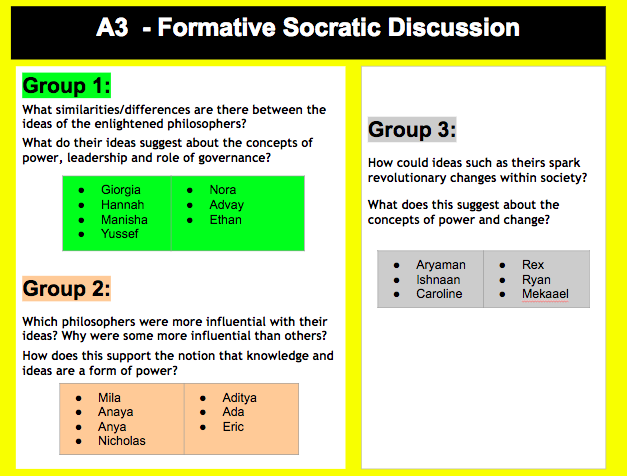
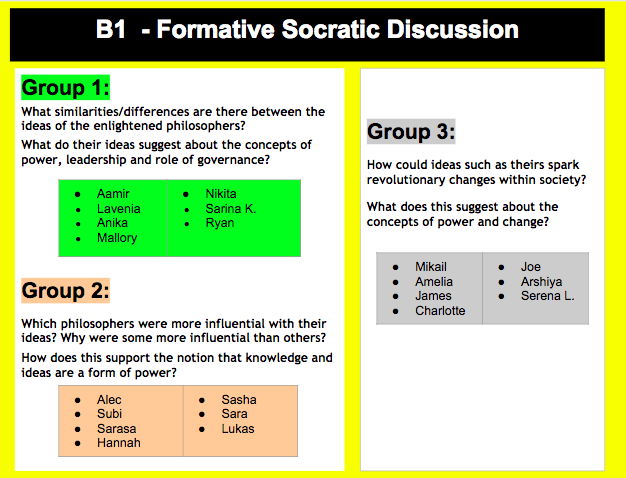
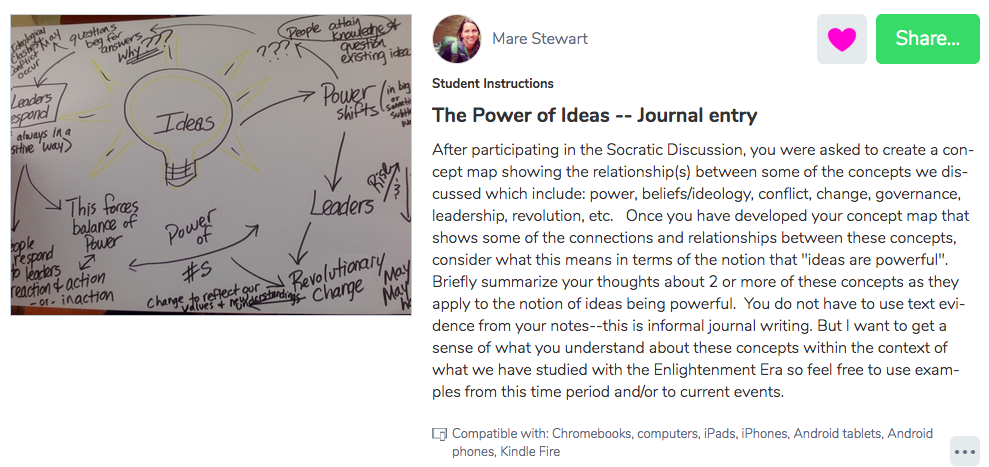
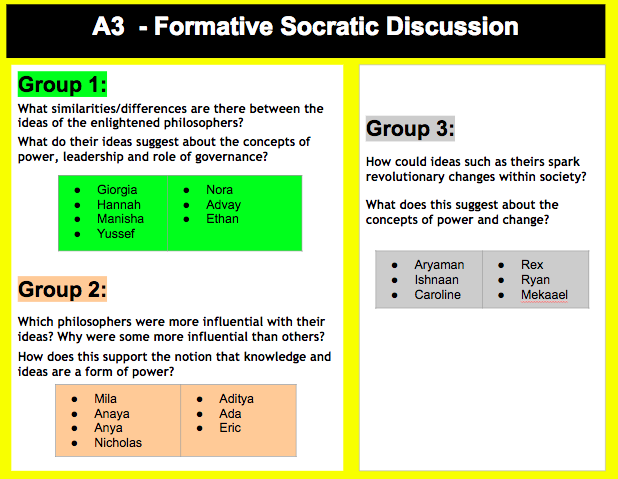
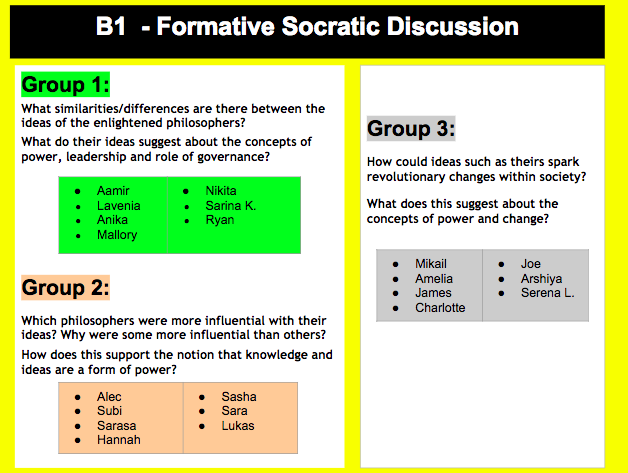
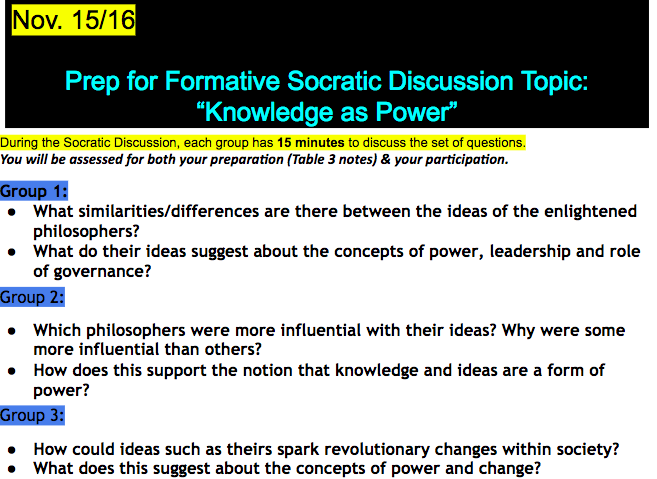
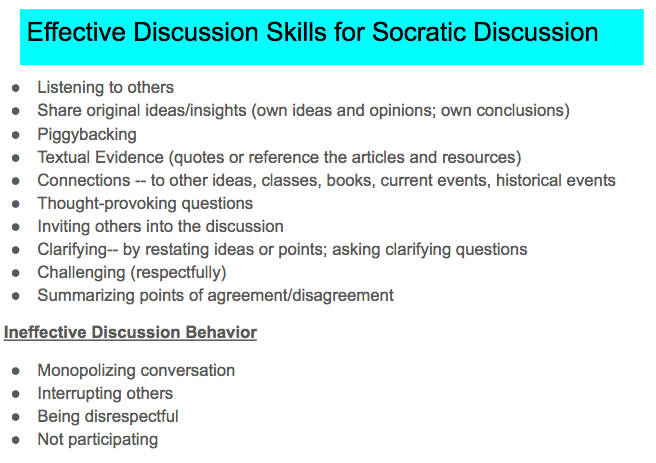
 RSS Feed
RSS Feed